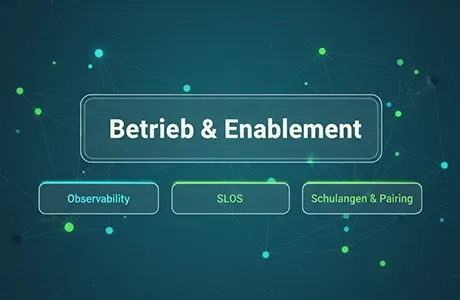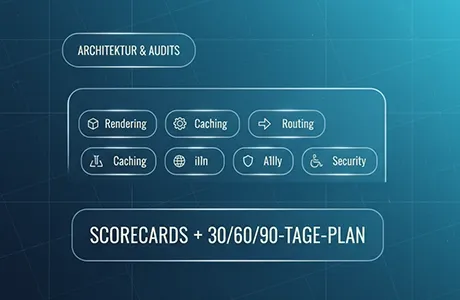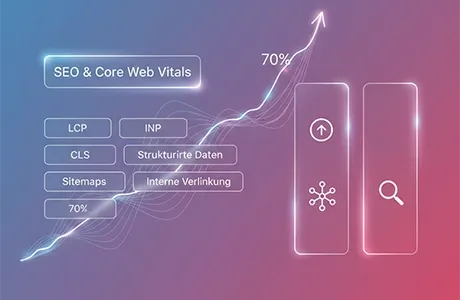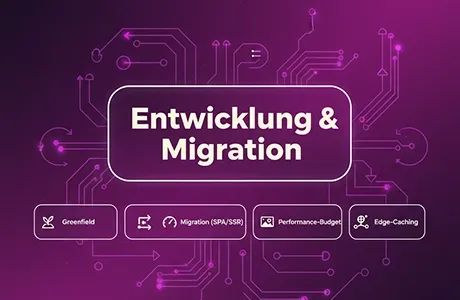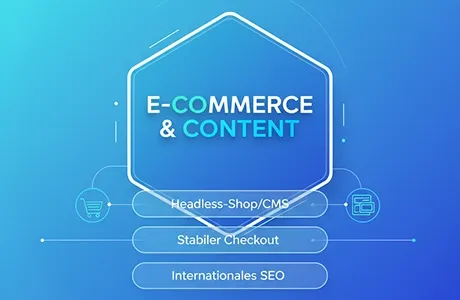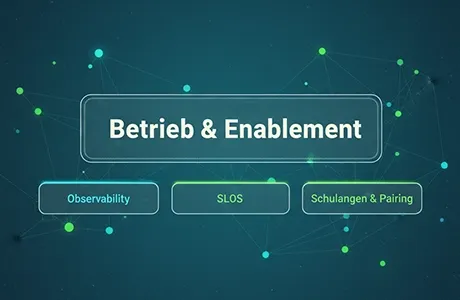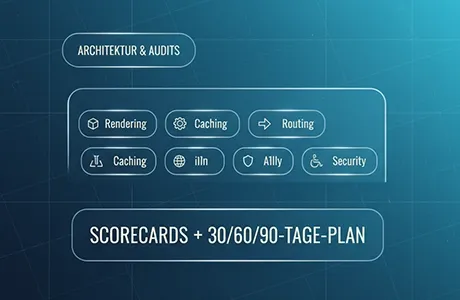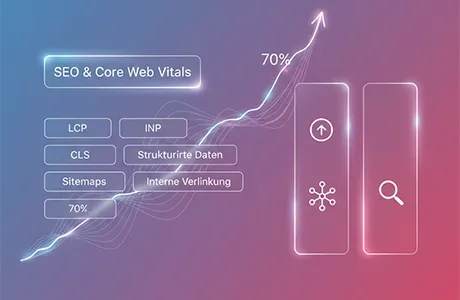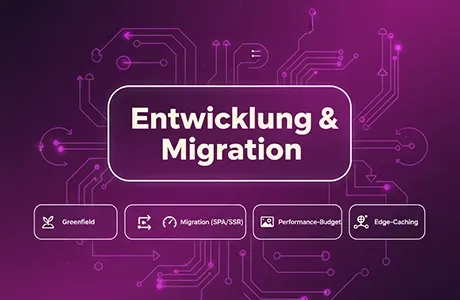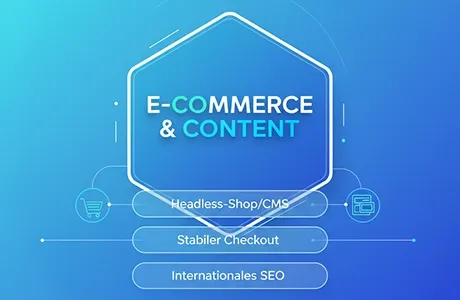Next.js agency for fast, scalable platforms
We migrate, build, and stabilize Next.js sites — with a clear roadmap, dedicated owners, and measurable outcomes.
Note: The free audit is only available via the form. Direct bookings don’t include it.
Fast load times & clean Google signals—without release freezes.
Predictable roadmap: start in 2 weeks, go-live in 6–10 weeks.
Trusted by teams across the DACH region
Selected projects from SaaS, insurance and events.
Free Next.js website audit (lite)
We review three key pages of your website and deliver a multi-page PDF with quick wins across performance, SEO & rendering – plus a 30-min review call.
Value: €1,200 — currently free via the form.
Benefits:
- Report within 2 business days incl. prioritization by impact/effort
- Current state, risks, actions per page
- Low risk, no sales pressure
Note: The free audit is available via form only (not included with direct booking).
Terms: B2B in DACH, 1× per company, analysis of public pages only.
What you gain with us

Next.js in DACH — remote-first, predictable & onsite when needed
We deliver Next.js projects remote-first for speed, quality, and clear workflows. We’re onsite at defined milestones in active projects (e.g., stakeholder alignment, go-live review). We bundle onsite sessions so more budget goes into outcomes, not travel.
Experience across Berlin, Munich, Hamburg, Zurich, and Vienna — workshops/reviews onsite as needed; delivery remains intentionally remote.
Why teams hire us:
- Fast start: Tech check in 2–5 days, kick-off in 1–2 weeks (remote)
- Measurable performance: Target INP P75 < 200 ms, LCP < 2.0 s
- Low-risk go-live: App Router, RSC, ISR/SSR with a clear caching strategy
- Headless-first: Contentful/Strapi/Headless WP cleanly integrated into CI/CD & edge caching
Full transparency & control: Bi-weekly demos, Live Roadmap, single point of contact
What clients say—trust that pays off
A good Next.js agency is measured by outcomes—and satisfied clients. Organizations across industries rely on prokodo for future-proof strategies and platforms that fit their needs.
The project was delivered on time with a strong focus on accessibility and WCAG compliance. Clear communication, smooth collaboration, and deep technical expertise ensured a high-quality result from start to finish.
Stine Bækos - Bertelsmann Gruppe
Product Owner
How we work—transparent & measurable
- 1
Kick-off & tech check
Sharpen goals, assess stack status (App Router/RSC, caching, CWV, SEO, third-party load) and prioritize five quick wins for the next 2–4 weeks.
- 2
Architecture plan
Rendering/caching per page type (RSC/SSR/ISR + revalidation), IA/SEO guardrails and a 30/60/90-day roadmap incl. effort & DoD.
- 3
MVP in 6–10 weeks
Prioritized core features on a production-ready codebase (CI/CD, monitoring, schema/SEO finish); canary go-live with clear milestones and KPIs.
- 4
Scale & operate
Enablement via pairing & runbooks, monthly performance/SEO audits & A/B tests; stability through monitoring, alerts and defined SLOs.
Who’s behind the work
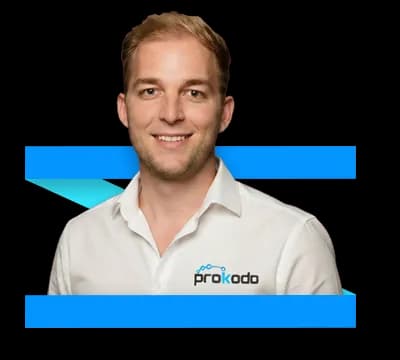
Christian Salat
Gründer von prokodo
I’m Christian, founder of prokodo. For 15 years I’ve helped teams build faster, more stable, search-strong web platforms—with Next.js, headless architecture and clear processes.
Frequently asked questions about a Next.js agency
Answers on architecture, timeline, costs and operations. Project-specific questions are covered in a 30-minute tech check—including an initial assessment.
It depends on scope and starting point (greenfield vs. migration). Typical approach: fixed-price architecture/performance audit first, then delivery in sprints or via retainer. For mid-size MVPs, clients often plan 6–10 weeks with a transparent 30/60/90-day plan.
With defined scope and ready designs, a realistic window is 6–10 weeks. We start with Sprint 0 (CI/CD, monitoring, feature flags), ship core templates first and go live via a canary rollout to reduce risk.
Not every page benefits equally. We decide per page type (landing, listing, detail, account) whether RSC/SSR/ISR/SSG is appropriate, and set freshness goals and revalidation. The aim: stable CWV (esp. INP/LCP) with minimal complexity.
It depends on team, budget, and workflows: Strapi offers full control (self-hosted), Contentful provides robust enterprise workflows (at a higher cost), Headless WordPress enables a quick editorial start (with more maintenance), and Sanity is highly flexible (developer-first).
We help you choose the right CMS for your team — get in touch for tailored advice.
A mix of rendering strategy, image pipelines, code splitting and a strict third-party budget. We also capture RUM data (real users) and ensure freshness via edge caching/ISR. Target values: LCP < 2.5 s, INP P75 < 200 ms.
Audit + rendering matrix first, then stepwise migration behind feature flags. Critical templates first, in parallel we harden observability and rollback. Go-live is incremental (canary) with metric guardians.
Yes: headless shops, fast checkouts, hreflang/i18n, clean URL schemes and indexation controls. Consistent canonicals, structured data and market-specific caching are key.
Shared KPIs: CWV (LCP/INP/CLS), indexation rate, organic traffic/CTR and conversion metrics. Reporting ties back to goals and a prioritized action list (impact/effort).











